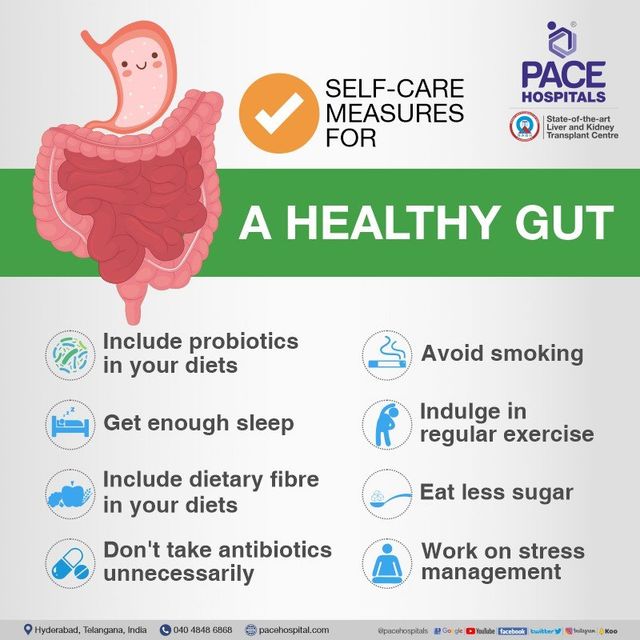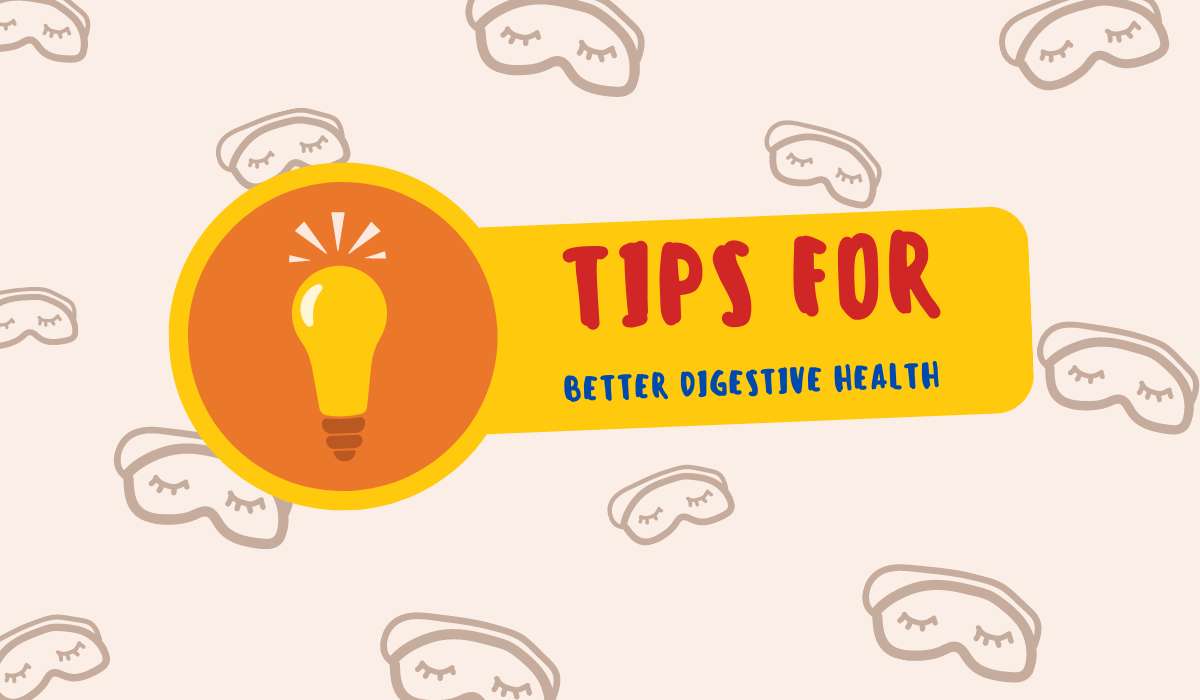Healthy Tips for Better Digestive Health, In this guide, we will explore some essential tips and strategies to help you achieve a healthier gut. Your digestive system plays a crucial role in breaking down food and absorbing nutrients, so it’s vital to take care of it. By making a few simple adjustments to your lifestyle and eating habits, you can promote optimal digestive function and experience increased overall well-being.
Whether you’ve been struggling with digestive issues or simply want to maintain good gut health, this article is for you. You’ll learn practical tips and techniques that are easy to implement and will yield positive results.
Before we dive into the tips, it’s essential to understand the importance of digestive health. Maintaining a healthy gut can boost your immune system, improve nutrient absorption, alleviate gastrointestinal problems, and even enhance your mood and mental well-being.
By following the advice shared in this article, you can support your digestive system’s natural function and enjoy the benefits of improved gut health. From staying hydrated and eating fiber-rich foods to incorporating probiotics and practicing mindful eating habits, we will cover it all.
So, let’s get started on this journey towards better digestive health. Buckle up and get ready to implement these healthy tips into your daily routine. Your gut will thank you!
Importance of Digestive Health

Your digestive health is vital for overall well-being. Taking care of your digestive system is crucial because it plays a significant role in breaking down food and absorbing nutrients.
When your digestive system is healthy, it can boost your immune system and improve nutrient absorption. This means that your body can effectively extract the essential vitamins and minerals from the food you eat, promoting optimal health.
Digestive health also plays a key role in alleviating gastrointestinal problems. By maintaining a healthy gut, you can reduce the occurrence of issues like bloating, indigestion, and constipation.
But the benefits of good digestive health don’t stop there. Research has shown that a healthy gut can even enhance your mood and mental well-being. The gut and brain are connected through the gut-brain axis, and a healthy gut can positively impact your mental health, reducing symptoms of depression and anxiety.
Therefore, it is crucial to prioritize your digestive health. By adopting healthy habits and making informed choices, such as eating a balanced diet and avoiding processed foods, you can support your digestive system’s natural function and enjoy the numerous benefits that come with it.
Investing in your digestive health is an investment in your overall well-being. So, take the necessary steps to maintain a healthy gut, and you’ll reap the rewards of improved digestive health in all aspects of your life.
Stay Hydrated and Eat Fiber-Rich Foods

Staying hydrated is essential for maintaining good digestive health. Drink plenty of water throughout the day to help keep your digestive system functioning properly. Water helps to soften stools, making them easier to pass, and prevents constipation. Aim to drink at least eight glasses of water each day.
Incorporating fiber-rich foods into your diet is another key aspect of promoting digestive health. Fiber adds bulk to your stool and helps prevent constipation. It also aids in digestion by ensuring proper movement of food through your digestive system. Make sure to include a variety of fiber-rich foods such as fruits, vegetables, whole grains, and legumes in your diet.
Additionally, fiber acts as a prebiotic, providing fuel for the good bacteria in your gut. These helpful bacteria play a crucial role in maintaining a healthy digestive system. By consuming fiber-rich foods, you are providing your gut with the necessary ingredients to support a healthy microbiome.
To increase your fiber intake, opt for whole fruits instead of juices, choose whole grain bread and cereals, and incorporate plenty of vegetables into your meals. You can also consider adding sources of soluble fiber such as oats, flaxseeds, and chia seeds to your diet.
Remember to gradually increase your fiber intake and drink enough water to prevent any discomfort or bloating. By staying hydrated and eating fiber-rich foods, you can support your digestive system and maintain optimal digestive health.
Regular Exercise and Physical Activity

Regular exercise and physical activity play a crucial role in maintaining a healthy digestive system. Engaging in regular exercise helps to stimulate the muscles in your digestive tract, promoting efficient digestion and preventing common digestive issues such as constipation.
By incorporating activities such as walking, jogging, or cycling into your routine, you encourage the smooth movement of food through your digestive system. This can help prevent bloating and discomfort associated with slow digestion.
Physical activity also helps to reduce stress, which can have a direct impact on your digestive health. Stress can disrupt the normal functioning of your digestive system, leading to issues such as irritable bowel syndrome (IBS) or acid reflux. By engaging in regular exercise, you can combat stress and minimize its negative effects on your digestive health.
Moreover, exercise can help maintain a healthy weight, which is essential for optimal digestive function. Obesity is associated with an increased risk of various digestive conditions, including gallbladder disease, fatty liver, and gastroesophageal reflux disease (GERD). By maintaining a healthy weight through regular exercise, you can reduce your risk of developing these conditions.
Remember to choose activities that you enjoy and aim for at least 30 minutes of moderate-intensity exercise, such as brisk walking, most days of the week. Consult with your healthcare provider before starting any new exercise program, especially if you have any pre-existing medical conditions.
By making regular exercise and physical activity a part of your lifestyle, you can support your digestive health and promote overall well-being.
Mindful Eating Habits and Portion Control
When it comes to maintaining a healthy digestive system, practicing mindful eating habits and portion control is essential. Mindful eating means being fully present and aware of your food choices and eating habits. It helps you savor every bite, pay attention to your body’s hunger and fullness cues, and make healthier choices.
Start by eating slowly and chewing your food thoroughly. This allows your digestive system to break down food more easily, reducing the risk of bloating and discomfort. Avoid distractions such as watching TV or using your phone while eating, as they can lead to mindless overeating.
Portion control is crucial to prevent overeating and maintain a healthy weight. Instead of mindlessly filling your plate, pay attention to your body’s hunger signals. Use smaller plates and bowls to help control portion sizes. Focus on adding more fruits, vegetables, and whole grains to your plate, while limiting processed and high-fat foods.
Listen to your body and eat until you are satisfied, not overly full. It takes about 20 minutes for your brain to register that you are full, so eating slowly can prevent you from overeating. Avoid eating late at night, as it can disrupt your digestion and lead to acid reflux or indigestion.
By practicing mindful eating habits and portion control, you can improve your digestion, prevent digestive issues like acid reflux and bloating, and maintain a healthy weight. Remember to listen to your body’s cues and make conscious decisions about what and how much you eat.
Incorporating Probiotics and Fermented Foods
To further improve your digestive health, it’s important to incorporate probiotics and fermented foods into your diet. Probiotics are live bacteria and yeasts that are beneficial for your gut health. They help maintain a balanced microbiome, which is crucial for proper digestion. Fermented foods, on the other hand, are rich in probiotics and help promote the growth of healthy bacteria in your gut.
You can easily incorporate probiotics into your diet by consuming foods such as yogurt, kefir, sauerkraut, kimchi, and kombucha. These foods are not only delicious but also provide a good dose of probiotics to support your gut health. Consider adding them to your meals or enjoying them as snacks.
Fermented foods offer various benefits in addition to their probiotic content. They can help enhance nutrient absorption, improve digestion, and boost your immune system. They can also be beneficial for individuals who experience digestive issues such as bloating, gas, or constipation.
When incorporating probiotics and fermented foods into your diet, it’s important to choose organic and unpasteurized options whenever possible. This ensures that you’re getting the highest quality and most live bacteria, which are beneficial for your gut. Remember to start with small amounts and gradually increase your intake to allow your body to adjust.
By including probiotics and fermented foods in your diet, you can support a healthy digestive system and improve your overall well-being. They provide a natural and effective way to enhance your gut health and ensure optimal digestion. So, why not give them a try and enjoy the benefits they have to offer?
Conclusion of Healthy Tips for Better Digestive Health
Incorporating healthy tips for better digestive health can greatly improve your overall well-being. By prioritizing your digestive health, you can experience improved digestion, reduced bloating and discomfort, and increased nutrient absorption. Here are some key takeaways to remember:
- Stay hydrated and consume fiber-rich foods to promote regular bowel movements and prevent constipation.
- Engage in regular exercise and physical activity to stimulate digestion and maintain a healthy weight.
- Practice mindful eating habits and portion control to prevent overeating and promote proper digestion.
- Incorporate probiotics and fermented foods into your diet to support a balanced gut microbiome and enhance digestion.
Remember, small changes can make a big difference. Start by implementing one or two of these tips and gradually incorporate more into your daily routine. Your digestive system plays a crucial role in your overall health, so it’s important to take care of it. With these healthy habits, you can enjoy improved digestion, better nutrient absorption, and overall digestive wellness. Take charge of your gut health and feel the benefits in your everyday life.
For More Blogs visit Aerns

